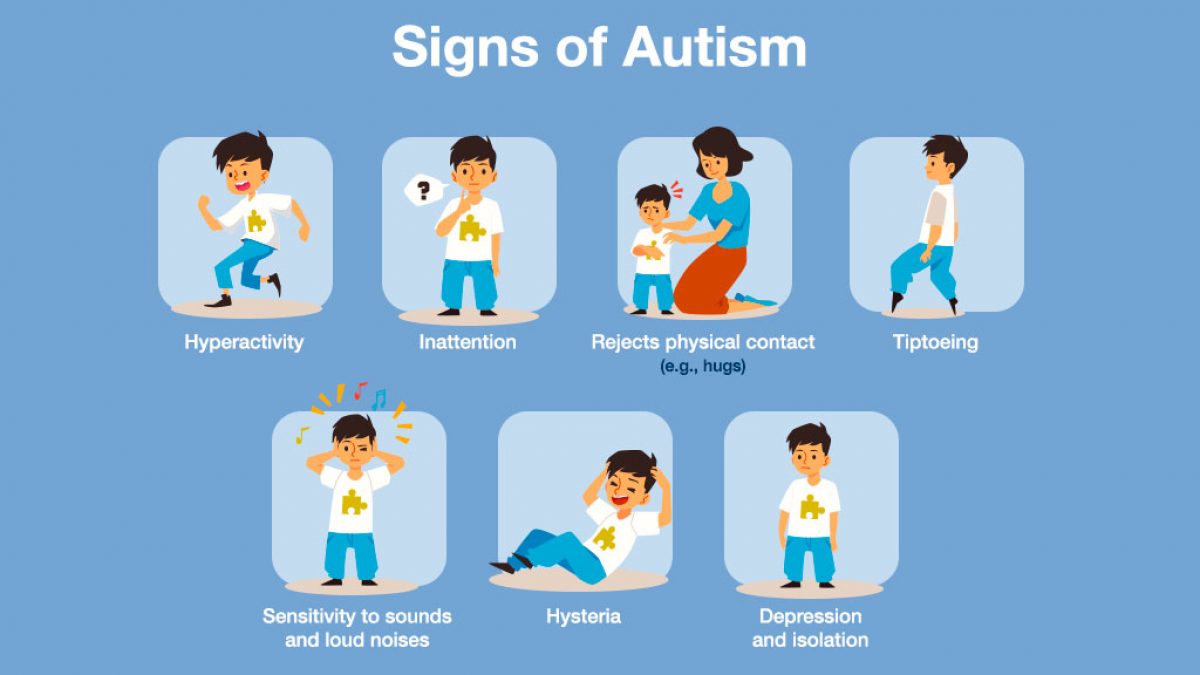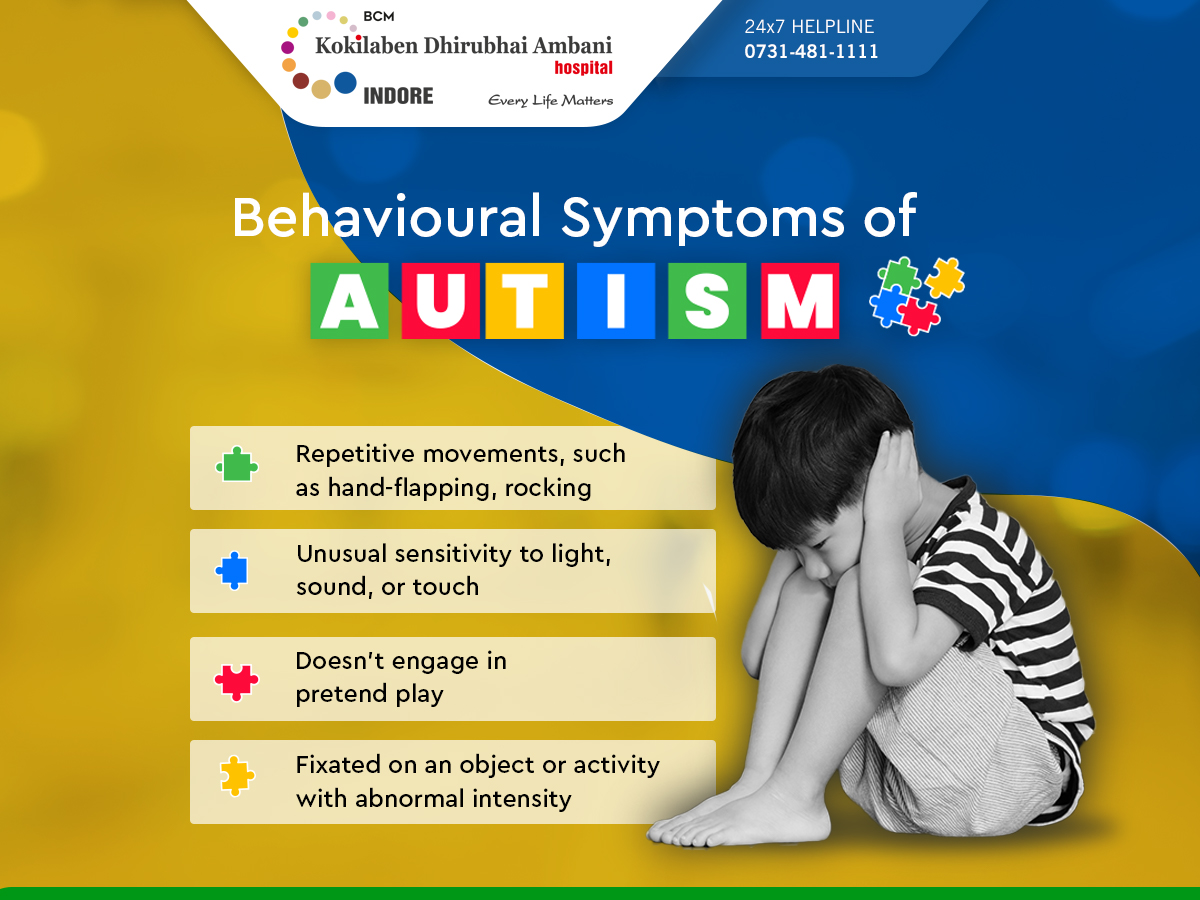How experts in Autism Spectrum Therapies address nonverbal communication barriers
How experts in Autism Spectrum Therapies address nonverbal communication barriers
Blog Article
Recognizing the Effect of Behavioral Autism on Daily Life and Social Interactions
You could not recognize how deeply behavioral autism influences day-to-day life and social interactions. Individuals on the range often browse a globe filled with communication difficulties and sensory overload. These obstacles can lead to irritation and isolation, influencing their connections and general health.
Specifying Behavior Autism and Its Features
Behavior autism, usually referred to as autism spectrum problem (ASD), encompasses a series of problems defined by obstacles in social communication, communication, and repetitive actions. You could discover that people with ASD typically have a hard time to interpret social signs, which can result in misunderstandings in discussions. They may discover it difficult to develop eye contact or engage in little talk, making social circumstances feel overwhelming.
Communication difficulties can manifest in different methods, from delayed speech advancement to a preference for utilizing fewer words. By identifying these qualities, you can foster an atmosphere that advertises approval and encourages efficient interaction, assisting people with autism flourish in their day-to-day interactions.
The Range of Autism: Understanding Variability in Habits
Autism range condition (ASD) isn't a one-size-fits-all diagnosis; it varies commonly amongst individuals. You might come across people who are highly verbal and engage quickly in conversations, while others might prefer solitary activities or connect non-verbally.
Additionally, the way individuals with ASD reply to sensory input can differ substantially; some may be overwhelmed by brilliant lights or loud noises, whereas others prosper in promoting settings. The range additionally includes distinctions in social communications; some individuals might struggle to translate social cues, while others browse social settings with loved one simplicity. Understanding this irregularity is crucial, as it assists you value everyone's one-of-a-kind experience and dressmaker assistance to their particular requirements, cultivating a much more comprehensive environment for everybody.
Interaction Difficulties Faced by People With Autism
When you connect with individuals on the autism spectrum, you might notice their unique communication obstacles. They commonly face problems with both nonverbal and verbal signs, which can affect their social interactions. Recognizing these barriers is crucial for cultivating better links and assistance.

Verbal Communication Problems
Several individuals on the autism spectrum experience spoken interaction difficulties that can substantially influence their everyday interactions. You may discover it testing to reveal your thoughts, feelings, or requires clearly. This can result in disappointment for both you and those around you, as misconceptions occur. You may struggle with launching conversations, preserving a topic, or recognizing subtleties in speech. Typically, you could choose using straightforward language or recurring phrases, which can limit your ability to engage in much deeper conversations. Your volume, speed, or tone could not line up with social assumptions, creating others to misunderstand your intents. Identifying these challenges can help you and your support network create approaches to improve interaction and promote much better connections with others in your every day life.
Nonverbal Interaction Obstacles
Spoken interaction isn't the only difficulty individuals on the autism spectrum face; nonverbal interaction barriers can be simply as significant. You might find it difficult to analyze body language, faces, and eye call, which are vital for efficient interaction. These challenges can bring about misconceptions or misinterpretations of social signs, making interactions feel overwhelming or complex. You might struggle to reveal your very own feelings via nonverbal methods, leaving others unclear of your feelings or intents. This disconnect can produce feelings of isolation and irritation. Acknowledging these barriers is crucial for fostering understanding and compassion in your communications. By resolving nonverbal interaction, you can find approaches to boost your social experiences and improve your total top quality of life.
Social Communication Impacts
Social communications can usually really feel frustrating due to the distinct interaction difficulties faced by individuals with autism. Identifying these obstacles can help you locate methods to improve communication, such as practicing social skills in secure setups or using visual help. Understanding your needs permits you to navigate social interactions with better self-confidence and simplicity.
Social Interaction and Connection Building in Autism
While building relationships can be challenging for people with autism, understanding their special viewpoints and communication styles can cultivate purposeful connections. You may observe that lots of people on the spectrum choose straight interaction and may fight with social cues or small talk. By being uncomplicated in your communications, you can aid develop an atmosphere where they really feel comfy.
Involving in shared interests can also you can try this out offer as a bridge to deeper connections. Whether it's a leisure activity, a favored show, or a shared passion, these typical strings can open up doors to relationship.
Life Regimen: Browsing Approaches and difficulties
Navigating day-to-day life regimens can be particularly testing for people with autism, particularly when unexpected adjustments take place. To browse these obstacles, think about carrying out visual schedules or lists.
Developing a regimen that includes sensory breaks can also be advantageous. You can prepare time-outs throughout your day to reenergize. It's necessary to connect with those around you, letting them recognize your needs and choices. This helps produce an understanding setting.
Finally, practice mindfulness methods to manage anxiety and stress and anxiety. Basic breathing exercises or grounding techniques can make a substantial difference. By incorporating these methods, you can enhance your everyday routine and reduce disturbances, making life feel a lot more manageable.
Strengths and Abilities of Individuals on the Autism Range
Understanding life routines is just one facet of the autism experience. Numerous people on the autism spectrum have remarkable strengths and capacities that establish them apart. You may locate that your focus to information is extraordinary, permitting you to master jobs that need accuracy and emphasis. Your capacity to think outside the box can cause cutting-edge services in various circumstances.
Furthermore, your memory skills typically radiate, particularly in areas of rate of interest. Autism Behavioral Therapy. This knack for maintaining details can make you a useful resource in areas like technology, scientific research, or art. You may additionally exhibit strong aesthetic thinking, enabling you to envision complex principles and resolve issues creatively
Additionally, your distinct viewpoint on the globe can cultivate empathy and understanding in others, improving social interactions. Embracing these toughness not just boosts your self-confidence yet likewise helps others appreciate the varied skills you offer the table.
Producing Inclusive Environments for Individuals With Autism
Producing comprehensive settings for people with autism starts with making sensory-friendly areas that deal with their special needs. You can likewise foster possibilities for social communication, helping to construct friendships and links. By making these modifications, you'll add to a more inviting environment for everyone.
Creating Sensory-Friendly Spaces
While making sensory-friendly areas, it's important to mirror on the distinct requirements of individuals with autism. Integrate quiet areas where people can charge and pull back when bewildered. Consist of aesthetic timetables or clear signs to help individuals browse the space with confidence.
Promoting Social Interaction Opportunities
Creating sensory-friendly spaces not just addresses individual convenience official statement however likewise sets the phase for meaningful social interactions among people with autism. To advertise these interactions, create comprehensive environments that welcome engagement. Organize organized activities, like art classes or team games, that motivate cooperation without frustrating sensory input. Usage aesthetic help and clear communication to help every person engage easily. Encourage peer mentoring, pairing people with autism with helpful peers that can lead them with social situations. In addition, think about hosting routine area events that commemorate neurodiversity, promoting approval and understanding among all participants. By implementing these techniques, you can improve social possibilities, aiding individuals with autism build friendships and strengthen their social skills in a secure, welcoming setting.

Frequently Asked Concerns
How Can Buddies Assistance A Person With Behavioral Autism?
You can sustain a pal with behavior autism by holding your horses, listening actively, and appreciating their borders. Involve in tasks they enjoy, communicate freely, and produce a comfortable atmosphere where they feel valued and comprehended.
What Resources Are Readily Available for Moms And Dads of Children With Autism?
You can discover numerous sources for parents of kids with autism, including support groups, academic websites, and neighborhood social work. Connecting with other parents can likewise supply useful insights and shared experiences to help navigate difficulties.
Can Behavioral Autism Change Over Time?

Yes, behavioral autism can change with time. You may see shifts in communication, social abilities, and behavior as your kid expands. Early intervention and assistance usually play crucial duties in these developmental modifications.
Just How Do Sensory Sensitivities Influence Day-to-day Live?
Sensory sensitivities can make daily experiences overwhelming. You might fight with loud sounds or brilliant lights, bring about anxiety or avoidance. Locating atmospheres that Resources suit your needs can substantially boost your comfort and total day-to-day live.
What Are Typical Misconceptions About Behavioral Autism?
You might think behavior autism just affects interaction skills, yet it's even more complicated. Lots of presume individuals lack empathy or intelligence, which isn't true. Comprehending these misconceptions aids foster approval and assistance for those on the spectrum.
Behavior autism, frequently referred to as autism spectrum disorder (ASD), includes a variety of problems characterized by difficulties in social interaction, communication, and repetitive actions.Social interactions can frequently really feel frustrating due to the unique interaction difficulties encountered by individuals with autism.Designing sensory-friendly spaces not only addresses individual comfort yet also establishes the stage for purposeful social interactions among individuals with autism. Motivate peer mentoring, pairing people with autism with helpful peers who can guide them through social situations. By carrying out these techniques, you can boost social possibilities, helping people with autism construct friendships and enhance their social abilities in a secure, welcoming environment.
Report this page